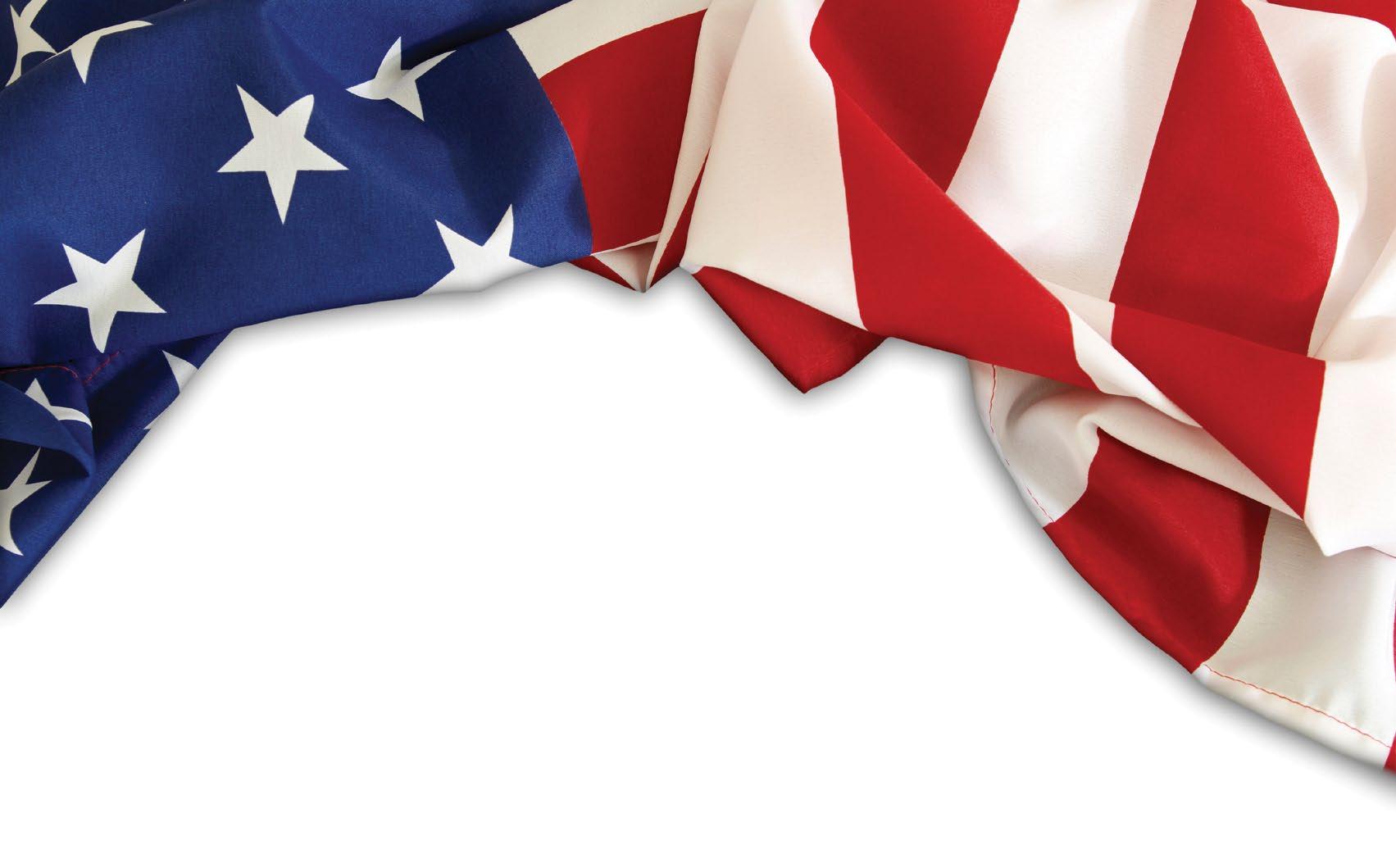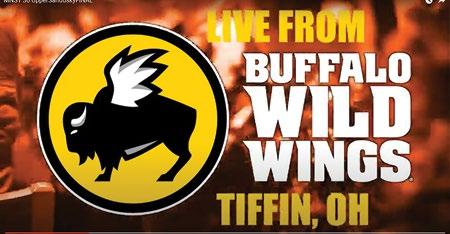
6 minute read
Make the Most of Resources, Culture to Build and Keep Good Teams
As 2022 began, a persistent shortage of labor continued to be a key challenge for Buffalo Wild Wings® franchisees and their teams, who’ve hoped for improvement after nearly two years of suffering from the business complications of the ongoing coronavirus pandemic.
While COVID-19 infections have ebbed and flowed since March of 2020, the difficulties that franchisees and businesses have had finding, hiring and retaining team members have been constant. Not limited to the restaurant or hospitality industries, the trend in the nation’s labor rate even earned a nickname in 2021: the Great Resignation.
Advertisement
Government data shows that more than 20 million people quit their jobs in the second half of last year for a wide range of reasons. It was a continuation of a trend that has seen employers struggle to find the personnel they need to keep their operations running. Be it due to the fears of contracting COVID-19, child care difficulties caused by the pandemic or other causes, a significant decrease in eligible workers in the labor pool has employers throughout the economy scrambling to find job candidates and keep them on board as team members.
While some point to specific pandemic-related causes for the struggles, others believe there is a significant philosophical shift in the psyche of workers. Anthony Klotz, an organizational psychologist and professor at Texas A&M University credited with coining the term, “the Great Resignation,” told Bloomberg News in an interview in May that many people are seeking to change their work-life
by Sean Ireland
balance. In the future, he said, “Work will fit around our personal lives rather than our personal lives fitting around work.”
No matter the cause, the turmoil in the labor market continues to affect restaurant operations. Even in the last few months, some restaurants have pared back menus and trimmed hours of operation because they simply don’t have the teams to support their previous levels of service. The tight labor supply market also creates many problems beyond the in-restaurant experience. A shortage of drivers in the trucking industry and laborers in other industries has disrupted the supply chain for food and restaurant supplies, putting additional stressors on operations.
It adds up to a big headache for leaders of Buffalo Wild Wings sports bars. “It’s the worst it has been since the beginning of COVID-19,” said District Manager Jeff Carmody of Patton Wings, which owns 92 BWW® restaurants in several midwestern and southern states. “I would have thought by now application flow would improve and the COVID-19 issues would start to fizzle, but it’s only gotten worse.”
“Wages have increased dramatically to keep up in our competitive industry,” added Patton Wings District Manager Dan Parkerson. “There is a shortage of workers applying, as well as not staying longer than three to six months.”
Another Patton Wings District Manager, Joel Dover, echoed those sentiments. “We have a large demand and very little supply,” he said. “We have been forced to increase the amount of money we are paying both our team members and managers. Labor also has had extra stress due to the lack of staff in the buildings. It has forced our team members to do more on their shifts.”
That stress can lead current team members to join the Great Resignation, worsening an already bad situation. 7shifts, a team management software company designed for restaurants, reports that only 23% of restaurant openings for cooks and line cooks have applications, 37% of manager postings have applications and 56% of bartender postings have applications. That’s a lot of openings without candidates to fill them.
These Patton Wings managers have developed ways to try to make the most of the job candidates they see. “I am talking to as many candidates out there as possible that may look like a potential fit,” Carmody said. “Though I may not have an opportunity today, I have built a network with local talent and kept regular communications on opportunity potential. Building relationships has helped us have a bench in waiting for unexpected turnover.”
“When someone walks in and wants a job, you need to bend your schedule to meet those needs,” Dover said. “We need to grab them up because they can go next door and get hired.” He also suggested keeping the restaurant team members on alert – keeping their eyes and ears open for new team members wherever they are.
“We have used ads for hiring all the way down to our most simple position,” Parkerson added. “We’re offering retention bonuses, sign-on bonuses and referral bonuses. They have helped to a small degree. Anyone hired from any of these methods is a win.”
Carmody also suggested widening – but not lowering – standards. “I don’t always look for candidates with the best resume or tenure. You have to look to take a chance on positive people who are excited to lead and be a part of a team,” he said. “You can always teach the Xs and Os they don’t know, but teaching leadership is a challenge. We work on being hard on standards but easy on people, and I feel this has been a road to our success in keeping solid tenured managers.”
If half of the equation is finding and hiring, the other half is retaining team members. Those who leave are citing their unhappiness in the workplace and work environment, often dealing with the fallout from being short-staffed and overworked.
“We’re trying to keep managers to keep things light in the environment and really push them to create a fun work environment and embrace busy times with the staff,” Carmody said. “It’s easier said than done, but I feel that coming off the stresses that COVID-19 has brought, it has taught our managers to be easier on people while keeping the focus on executing standards.”
“We are staying active with our present team members and making sure they feel appreciated and asking them to encourage their friends to work with Buffalo Wild Wings,” Dover added. “We promote based on productivity and highlight that any team member can advance with our company.”
In the end, the best way to meet and conquer the labor challenge may be through the organization’s culture. “Our Buffalo Wild Wings culture is huge in our ability to attract and retain [team members],” Dover said. “We want and need our managers and team members to feel the value they add to the team, that we are the greatest American sports bar and that we create a winning culture.”
“I feel culture plays a huge role. I am a firm believer that if your team leaders don’t provide a consistent and enjoyable culture for your team, then you will always be fighting an uphill battle,” Carmody agreed. “The key is managing strong personalities that don’t fit the culture and working with them to change. If they don’t change, then the cord must be cut as they will likely negatively impact the culture you are trying to build. It doesn’t take many ‘culture suckers’ to negatively impact the environment of your operation.”
“It plays an extremely important role. A positive culture and a structured environment will attract and retain talent,” Parkerson said. “Pay is competitive from one company to the next, but the culture inside the four walls is crucial.” S










